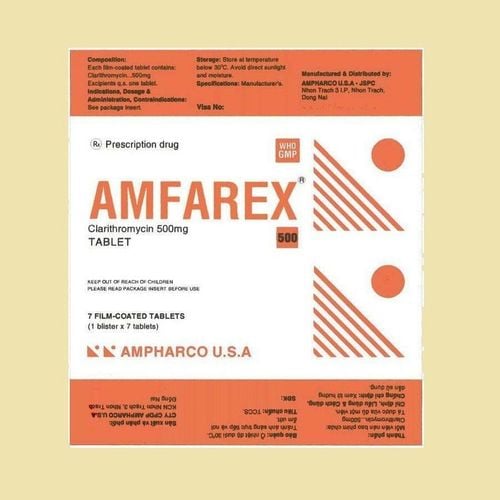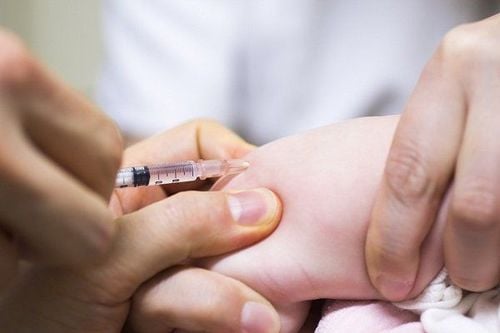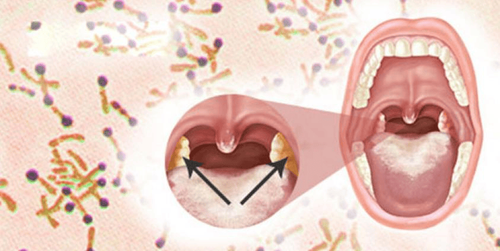This is an automatically translated article.
Many people in epidemic areas do not fully understand what diphtheria is until the disease breaks out strongly and endangers human life. Each person needs to actively learn about diphtheria about this disease to help prevent pharyngitis effectively and safely.
Diphtheria can be transmitted directly from an infected person to a healthy person through the respiratory tract. This is the most common form of diphtheria infection. In addition, diphtheria bacteria are also transmitted from person to person through an intermediary such as toys and objects containing secretions of a person with diphtheria. Diphtheria bacteria can enter through damaged skin, causing cutaneous diphtheria. On average, after about 2 weeks of infection with bacteria, sick people can start infecting others through the above-mentioned forms.
Previously, the diphtheria epidemic was quite common in most localities across the country, but since diphtheria vaccine was included in the expanded immunization program, the diphtheria epidemic has been controlled and Only a few sporadic cases have been reported due to non-vaccination.
Diphtheria epidemics often occur in remote areas where vaccination rates are low. Currently, diphtheria epidemic has not been eliminated in our country, so people can still get the disease if they have not been vaccinated against diphtheria and come into contact with the pathogen.
The Department of Preventive Medicine recommends that people take the following measures well to actively prevent diphtheria, specifically:
Take children to be vaccinated against diphtheria vaccine: ComBe Five or DPT-VGB-Hib (SII), full Td, on schedule. Wash your hands often with soap; when coughing or sneezing, it is necessary to cover your mouth, keep your body, nose and throat clean every day; Limit contact with people with diphtheria or suspected diphtheria. Make sure the house, the nursery, is clean, the classroom is well ventilated and has enough light. When having signs of diphtheria or suspected of having diphtheria, they must be isolated and taken to a medical facility for timely examination and treatment. People in the outbreak need to strictly abide by taking preventive medicine and vaccinating against diphtheria according to indications and requirements of health authorities. The most effective way to prevent diphtheria is to fully and timely vaccinate. Currently, Vinmec International General Hospital provides a wide range of diphtheria vaccination services for children and adults with 5 combinations, including:
Infanrix 6-in-1 vaccine Hexa from GSK (Belgium) 6-in-1 vaccine Sanofi's Hexaxim (France) Sanofi's 5-in-1 Pentaxim vaccine (France) Adacel 0.5 ml Sanofi - France Tetraxim 0.5 ml Sanofi - France To ensure To ensure the effectiveness of vaccination and safety, before injecting, customers will be examined by specialized doctors, fully screened for health and physical problems, and advised on diphtheria vaccines. and injection regimen, monitoring and post-vaccination care before the appointment of vaccination according to the latest recommendations of the Ministry of Health & World Health Organization.
To register for examination and vaccination against diphtheria, you can contact the nationwide Vinmec Health System Hotline, or register online at the website.













